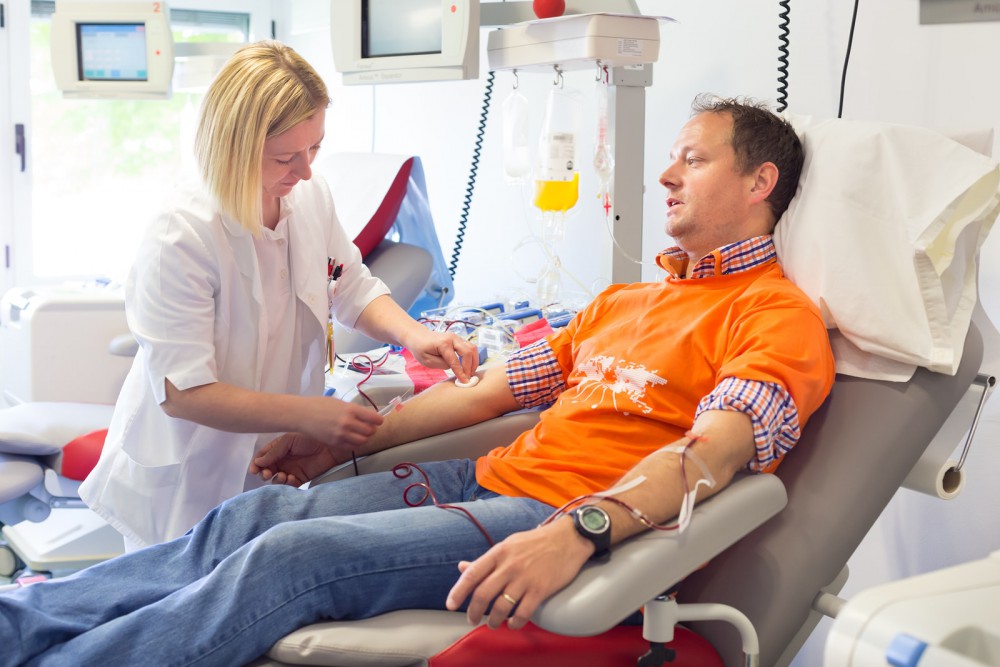
The Food and Drug Administration (FDA) recently announced the end of a 30-year ban on blood donations from gay and bisexual men that dates to the beginning of the AIDS epidemic in the 1980s.
Instead, men who have relations with other men may now donate blood if they have been abstinent for a year, according to The Washington Post. The agency said its approach is similar to that taken in other countries, including the United Kingdom, Japan and Australia.
“We have taken great care to ensure this policy revision is backed by sound science and continues to protect our blood supply,” FDA Acting Commissioner Stephen Ostroff said in a statement.
Shifting from a full ban to the 12-month deferral could increase annual blood donation totals by 317,000 pints, according to a 2010 University of California at Los Angeles (UCLA) study cited by the Post.
The FDA estimated that roughly half of those people prevented from donating blood under the prior ban will now be able to do so.
The FDA also noted that the change puts its policy in line with other policies for people potentially exposed to the HIV virus that causes AIDS. That includes men who have had sexual relations with either commercial sex workers or HIV-positive women, and women who have had sexual relations with HIV-positive men.
You Might Also Enjoy: Not Your Ordinary Organ Donation – The Scoop on Fecal Transplants
Those with hemophilia or other clotting disorders are still prohibited from donating blood, however, according to the International Business Times. That ban is related to possible dangers from the larger needles used in the donation process.
The policy shift occurred after ongoing lobbying by both medical and gay rights groups. The shift was first proposed at the end of 2014. The elimination of all restrictions on donations from gay or bisexual men was considered, but the FDA determined the risk of HIV transmission through blood would climb 400%.
A new national blood surveillance system will allow the FDA to check the impact of the policy change and ensure blood supply safety, the agency said.
About one in every 1.5 million units of blood is at risk of being tainted with HIV, according to American Red Cross data cited by the FDA.
Gay rights activists say the new policy doesn’t go far enough and remains discriminatory.
“While many gay and bisexual men will be eligible to donate their blood and help save lives under this 12-month deferral, countless more will continue to be banned solely on the basis of their sexual orientation and without medical or scientific reasoning,” the National Gay Blood Drive said, according to The Washington Post.
A 30-day deferral period is enough time to detect an HIV infection after exposure, Daniel Bruner, a senior policy director at Whitman-Walker Health, an organization which cares for lesbian, gay, bisexual and transgender patients, told the Post.
Policies vary worldwide, according to the BBC. For example, there’s a five-year ban in Canada, but in Italy, Mexico, Poland, Portugal, Russia and Spain there’s no ban – although the screening process is more difficult in some of those countries.









